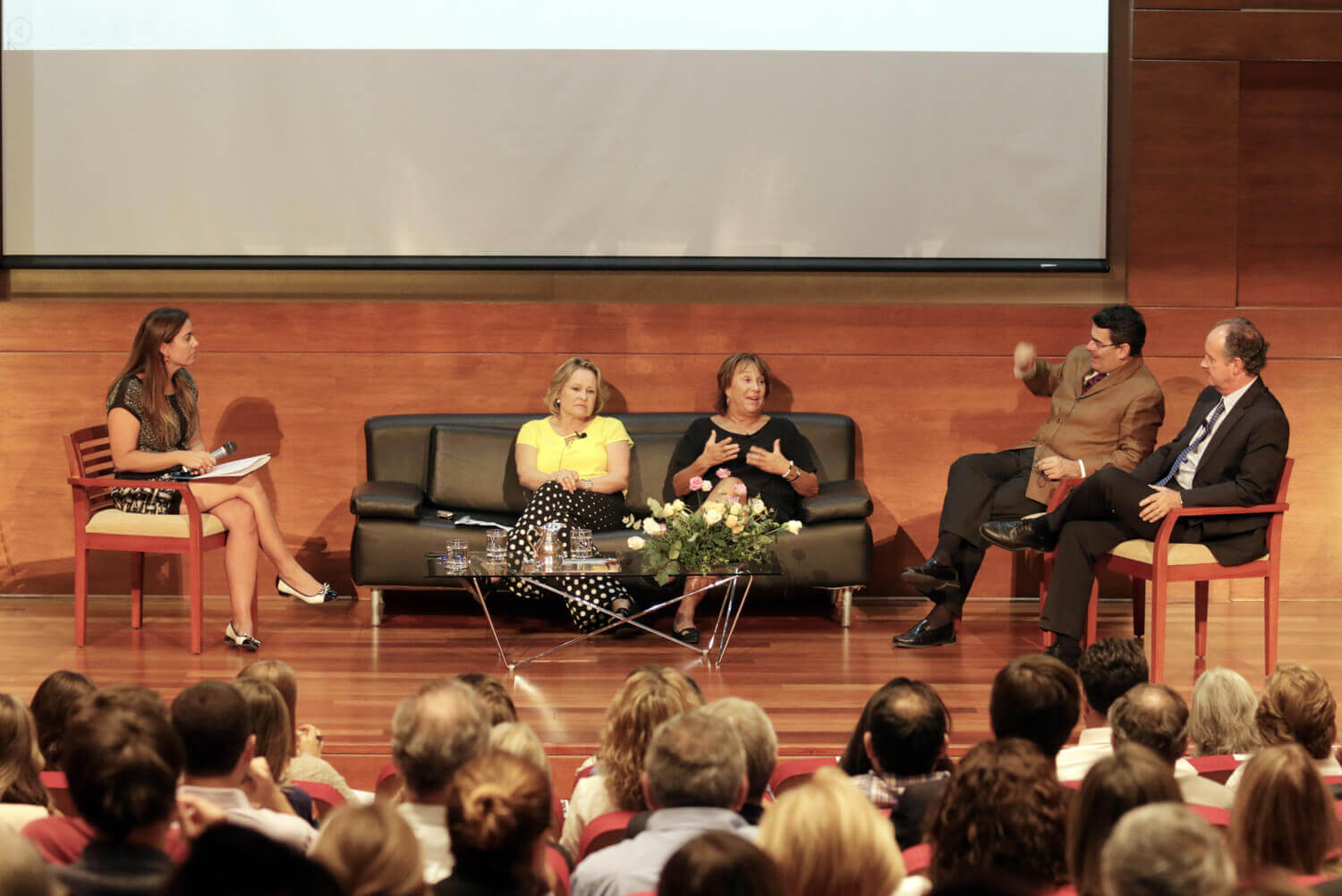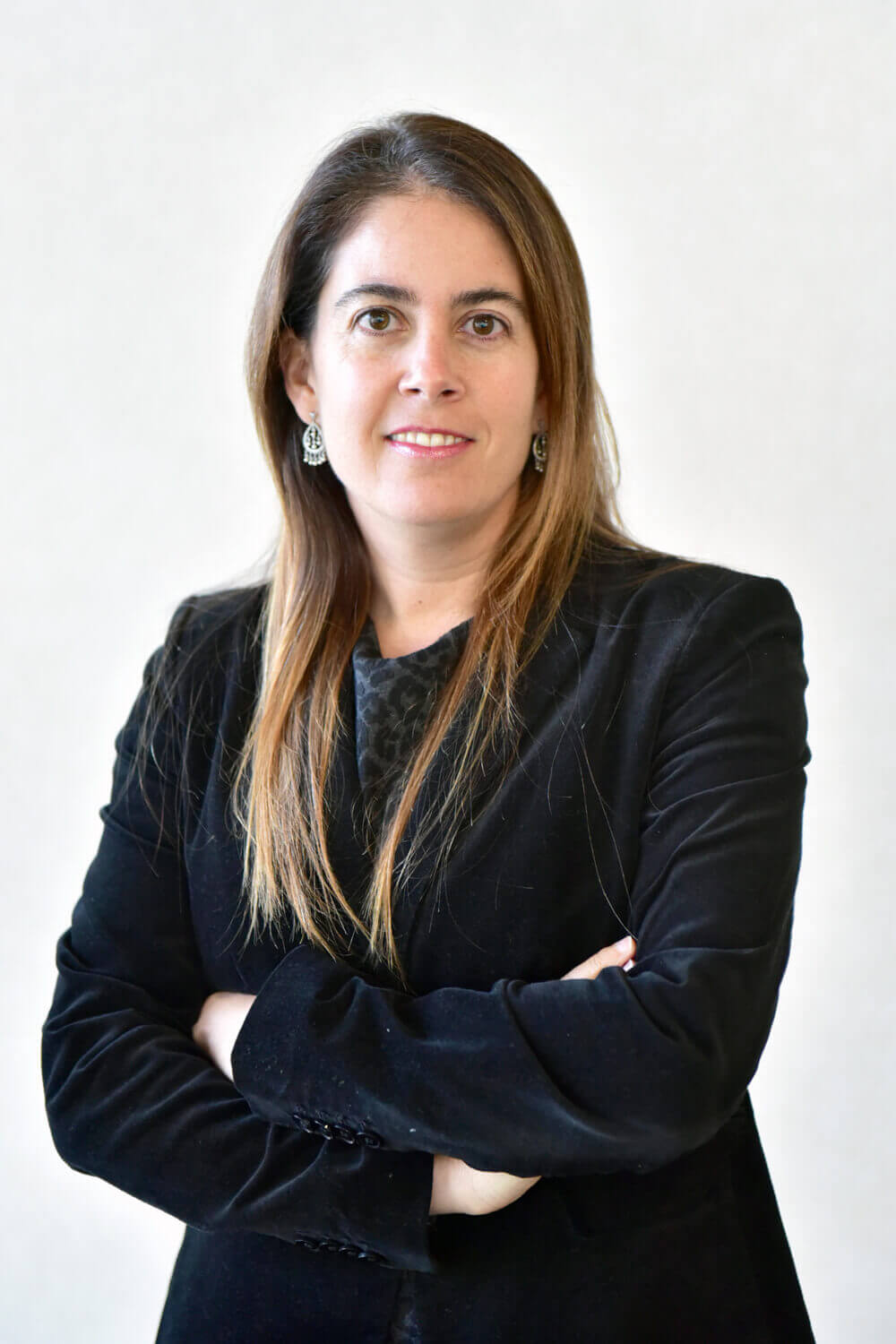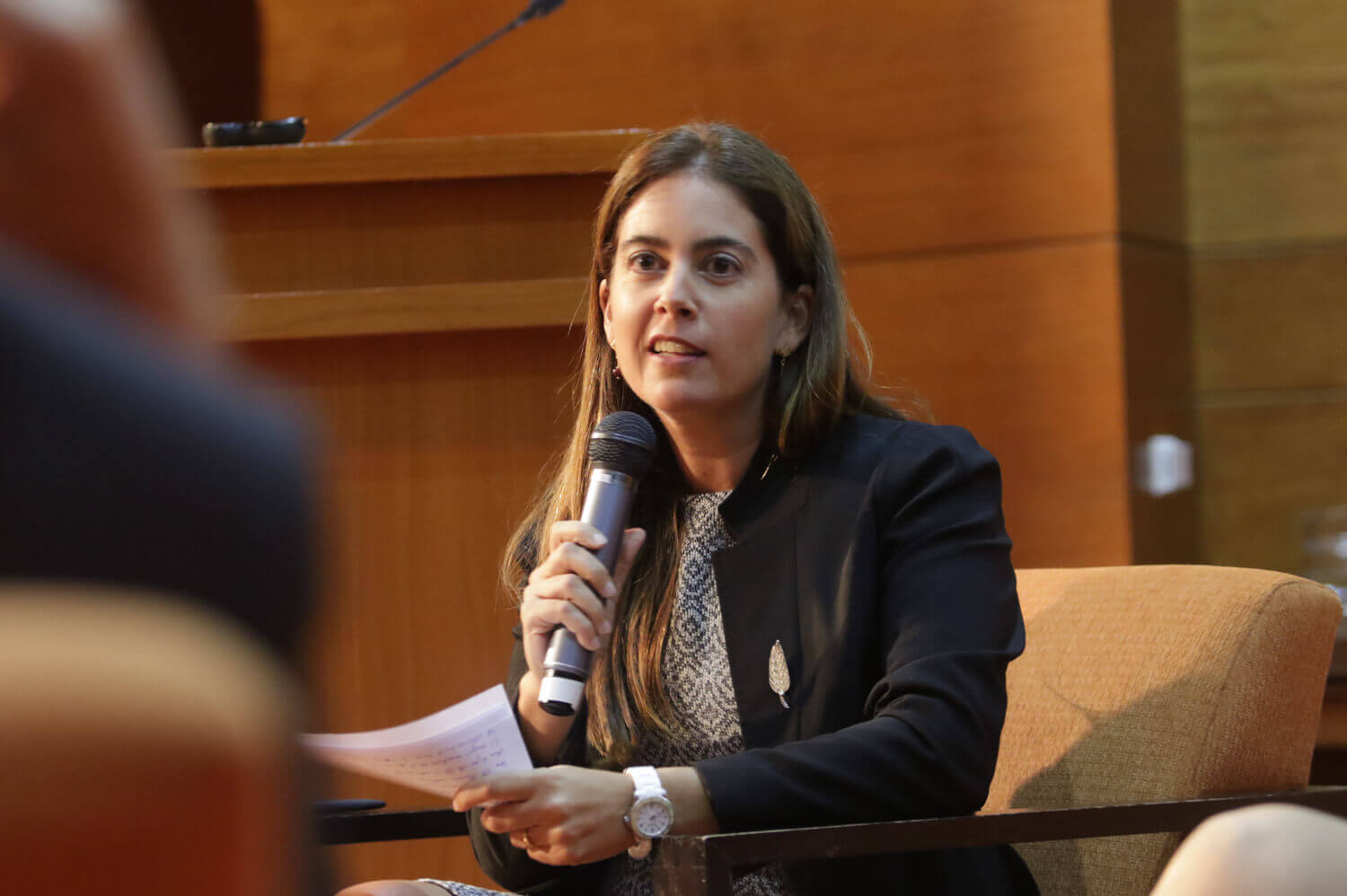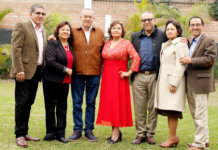According to Fernanda Hurtado, the call came completely out of the blue.
A recruiter was looking for someone to boost growth, increase membership and rethink the model of the Chilean AEF, which translates to the Association of Family Business. Hurtado was pleasantly surprised, remembering that call as a stroke of luck.
It was no coincidence, however. Fernanda Hurtado is a much-lauded member of the Chilean business community and a part of the Institute for Women’s Leadership in Latin America’s Women in Public Service Project. At the time she received the call, she was serving as the head of the Chilean Chapter of the International Chamber of Commerce (ICC).
Since taking over as CEO of the AEF in 2014, Hurtado has focussed on establishing a foundation to ensure the continuing success of family businesses. More than 55% of all private businesses in Chile are family-owned and yet many are relatively new. As such, succession and governance pose serious challenges for many families as they hand the reins over to the next generation.
Tharawat Magazine had the opportunity to sit down with Hurtado to discuss the role of AEF in Chile and some common challenges faced by family-owned businesses.
What were your first strategic actions after joining AEF?
The AEF was modelled after a similar institution that had already been established in Spain. One of the first things I did after I joined was suggest to the board that the Spanish model was inappropriate for Chile. That model saw efforts centred on urban areas, but here, there is a great distance between the Northern and Southern regions. A lot of family businesses in Chile are very far away from the capital, so it doesn’t make sense to concentrate only on Santiago as the centre of the whole initiative. We need to have a more integrated approach to what we’re doing across the country.
Also, we soon coined on to the fact that we needed to engage with companies that were eager to participate, specifically family businesses that realised succession was key to their existence. We started working in conjunction with other institutions that have a very strong family business representation in their membership. That is how we have come to collaborate with the National Chamber of Commerce, the Construction Chamber, the Santiago Chamber of Commerce and the Federation of Chilean Industry as well as bilateral chambers of commerce such as the German-Chilean Chamber of Commerce.
We’re thinking of expanding our activities and outreach to additional regions in collaboration with the Construction Chamber and the National Chamber of Commerce, where those institutions have a strong presence. A lot is going on, and it helps that the current socio-economic and political conditions are more positive than they have been in the past. Of course, this leads to better prospects for development and growth, which makes it easier to talk about the importance of coordinating the back-office of the family business.
You touched on the current economic environment Chilean family businesses are facing. What are some challenges and opportunities?
In general, I think that it’s mostly the same challenges that family businesses face all over the world. That said, I think there are a couple of characteristics that differentiate us from other places. Most family businesses in Chile are not that old; in fact, the majority are in the process of transitioning from the first to the second generation. The biggest challenge is getting the founder to understand that they need to let go a little bit and integrate the younger generation. They also need to think about how they are going to organise their business to keep the family together. I would say that the average life cycle of family businesses in Chile is 35 to 40 years, no more than that. Of course, we do have some very old family businesses, mostly in the agro-industry, and wineries are another example. Generally, though, you don’t see many 4th generation family-owned businesses here.
Why do you think that is?
It has to do with the fact that we are not an old country. We are just celebrating 200 years of history, and it makes sense that the older families have agricultural origins. You can argue that serious economic development in Chile only started in the 1970s and 80s. Many of the big family-owned companies that are still going strong to this date.

Do you get the sense there is a strong motivation to see these family businesses survive?
Absolutely! Family culture is very strong in Chile. The predominant religions within the country are very supportive of the family unit – Chileans spend lots of time with their relatives. When you have that type of a culture, you will do whatever it takes to remain whole as a family. We’re lucky that Chilean culture reinforces all the factors that go into maintaining a healthy family business over the long haul.
Of course, the big challenge today is adequately preparing your family business before something bad happens. This is something that worries me because often you’ll see a founder who has worked all their life in the trenches, day in day out, to ensure the survival of the company. It comes to a point where they say, ‘Oh, I’m done’, and they have not given any thought to the process of succession.
We know that you have initiatives like AEF Futuro, AEF Women, AEF Philanthropy and AEF Family Office. Can you tell us a more about why you decided to have these distinctive streams?
It has to do with understanding the dynamics of every family business. Usually, those families that are in the process of transitioning from the first to the second generation are not very concerned about family offices, foundations or philanthropy. The primary focus is to educate them about corporate governance, reputation and internal and external communications. We want to give them all the necessary tools they’ll need to survive.
It’s important to get them to understand that within the AEF, they will be able to network and share their experiences in a space of trust. We approach situations in a non-academic way so as not to alienate people. It’s crucial for them to feel that they’re not alone on their journey, that they can share with other families that have gone through the same process and see what the outcomes have been.
[ms-protect-content id=”4069,4129″]
That must also be the case for your chapter dedicated to women in the family business.
No question. Women in family businesses play many, many different roles. Some of them are top executives, shareholders, and members of the board. They can fill all of these positions at once, but also they’re mothers. It is up to them to instil core family values in the future generations of leadership. Even if they do not have any direct participation in the business, they always play a very important role within the family. They will be the ones to embrace different perspectives and encourage different personalities. So it’s very important for us to have a dedicated forum for them to get together, voice their concerns and learn from each other.
The same rationale went into establishing AEF Futuro, which focuses on developing the next generations of leadership. We’re not only preparing them to be a part of the family business, but also educating them to be responsible shareholders. They have to understand that they were born into a family that has a business, and they are therefore responsible for what the business has created. This is the most difficult group to work with because many of them tend to be more interested in their own entrepreneurial ventures or start-ups. What we try to do is reinforce the fact that they can put their energies towards these other activities and be a responsible part of their family’s business at the same time.

Fernanda Hurtado, courtesy of AEF Chile
What kinds of topics are on the minds of these young people?
Historically, Chile has been very active in terms of digital transformation, and there have also been some very, very strong trends encouraging university students to form their start-ups. We do see start-ups as being the driving force behind the economy of the future. So, we’re working with them to show how the start-up can be useful in transforming their current family business. For example, how can new technology help a family business be more efficient and cost-oriented or better facilitate the way that business is being done? This requires working with leaders, fathers and parents so that the entire community understands these start-ups are not just a crazy next generation idea. Start-ups are something that can bring effective change within the family business.
Where are we with the family office discussion in Chile? How mature are family offices?
I would say that in the past two years, the primary concern surrounding the single-family office is how they operate. Who are the family members that comprise the staff? We’re just finishing a survey that will characterise these family offices and have identified about a hundred single-family offices that are currently operating. There are those that are very sophisticated, and there are others where it’s just one family member with a computer doing some of the usual activity expected in a family office.
I think that our main objective is to get people to understand the organisational rationale as it pertains to the family in such a structure. Why is it important to have a family office? We know it’s useful for making impactful investments or tunnelling investments into philanthropic efforts. It’s also useful as a vehicle for legacy building and family union.
What is your dearest wish for the family businesses in Chile and AEF?
It would be getting people to see that it’s not just a business where you have family members, but that being a family business involves making very proactive decisions and facing difficult conversations. Those are the logical and necessary steps to sustain a business, to continue to grow the business and to transcend the founder’s motivation for forming the business in the first place.
These are the values that sustain a society. In Chile, we have a very strong sense of entrepreneurship, and so it’s imperative that we work with that. I would really like to see more Chilean family businesses as international leaders in their respective fields.
[/ms-protect-content]














